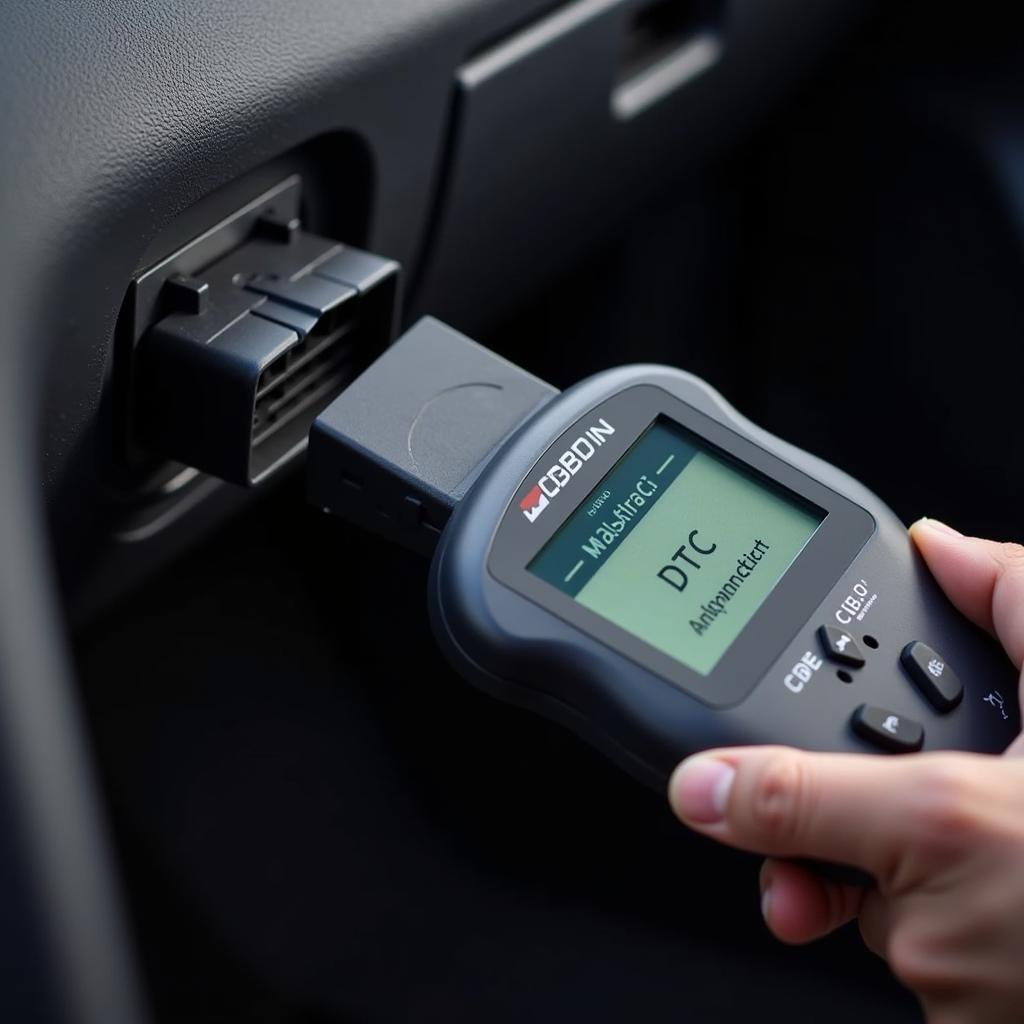Finding out what’s wrong with your car can be stressful, especially when a warning light flashes on your dashboard. That’s when a car diagnostic test comes in handy. But where do you go to get one? This guide will walk you through all your options and help you make the best decision for your vehicle and your wallet.
Understanding Car Diagnostic Tests
Before we dive into the “where,” let’s briefly cover the “what.” A car diagnostic test uses a specialized tool, called an OBD-II scanner, to communicate with your car’s computer system. This system monitors various components and records any issues as Diagnostic Trouble Codes (DTCs). The scanner retrieves these codes, providing valuable insights into the potential problems affecting your car’s performance.
Where to Get a Diagnostic Test on My Car: Exploring Your Options
You have several options when it comes to getting a diagnostic test for your car, each with its pros and cons:
1. Auto Repair Shops
Pros:
- Expertise: Mechanics at repair shops have extensive experience diagnosing and fixing car problems. They can interpret the diagnostic codes and recommend the necessary repairs.
- Convenience: Most repair shops offer diagnostic tests as a standard service.
- Comprehensive Service: Many shops will offer to fix the issue after diagnosis, saving you the hassle of finding another mechanic.
Cons:
- Cost: Diagnostic tests at repair shops can be more expensive than other options, sometimes ranging from $50 to $150 or more.
- Potential Upselling: Some unscrupulous shops might recommend unnecessary repairs.
2. Mobile Mechanics
Pros:
- Convenience: Mobile mechanics come to you, eliminating the need to drive your car to a shop, which is especially beneficial if your vehicle is not drivable.
- Personalized Service: You’ll often deal directly with the mechanic, allowing for clearer communication and a more personalized experience.
Cons:
- Cost: Mobile mechanics usually charge a premium for their convenience.
- Limited Scope: They might not have access to the same sophisticated equipment as larger repair shops.
3. Auto Parts Stores
Pros:
- Affordability: Many auto parts stores offer free or significantly discounted diagnostic tests.
- Accessibility: They are conveniently located and often have extended hours.
Cons:
- Limited Scope: The free tests are usually basic code readings, without detailed analysis or repair recommendations.
- Potential for Bias: Staff might steer you towards purchasing parts from their store, even if cheaper alternatives exist.
4. DIY with an OBD-II Scanner
Pros:
- Cost-Effective: After the initial investment in a scanner, you can perform unlimited diagnostic tests for free.
- Empowerment: It allows you to understand your car better and potentially fix minor issues yourself.
Cons:
- Technical Knowledge Required: Interpreting the codes and diagnosing the issue accurately requires some automotive knowledge.
- Tool Investment: OBD-II scanners vary in price, ranging from affordable basic models to more expensive professional-grade devices. To learn more about buying a diagnostic machine, check out our article on how much is a diagnostic machine for cars.
 A person using an OBD-II scanner on their car
A person using an OBD-II scanner on their car
Choosing the Right Option for You
The best place to get a diagnostic test on your car depends on your individual needs and circumstances:
- If you have a good understanding of car mechanics and want to save money: Consider purchasing an OBD-II scanner and doing it yourself.
- If you need a quick and affordable code reading: Visit a local auto parts store.
- If you need a comprehensive diagnosis and potential repairs: Take your car to a reputable auto repair shop.
- If convenience is a priority and your car is not drivable: Opt for a mobile mechanic.
Beyond the Diagnosis: What’s Next?
Remember, a diagnostic test is just the first step. Once you know what’s wrong with your car, you can decide on the best course of action. This might involve further investigation by a mechanic, repairing the issue yourself, or even deciding to sell your car if the repairs are too costly.
Frequently Asked Questions:
1. How much does a car diagnostic test cost?
The cost can range from free at some auto parts stores to $150 or more at repair shops. You can find more information about the cost of car diagnostics in our detailed article how much does a diagnostic cost on a car.
2. Can I drive my car with the check engine light on?
It depends. While you might be able to drive short distances, ignoring the light could lead to more severe damage.
3. Will a diagnostic test tell me exactly what’s wrong with my car?
It will pinpoint the problematic system, but further inspection by a mechanic might be needed to determine the exact cause and solution.
4. Can I trust the codes from a free diagnostic test?
While generally reliable, getting a second opinion from a mechanic is always a good idea, especially for complex issues.
5. How often should I get a diagnostic test?
It’s recommended to get one annually as part of your car’s regular maintenance.
Need More Help?
Diagnosing your car troubles doesn’t have to be a mystery. Armed with the information in this guide, you’re one step closer to a smoother, worry-free ride. If you need further assistance or expert advice, don’t hesitate to contact our team via WhatsApp at +1(641)206-8880 or email us at [email protected]. We are available 24/7 to address all your car diagnostic needs.

Leave a Reply